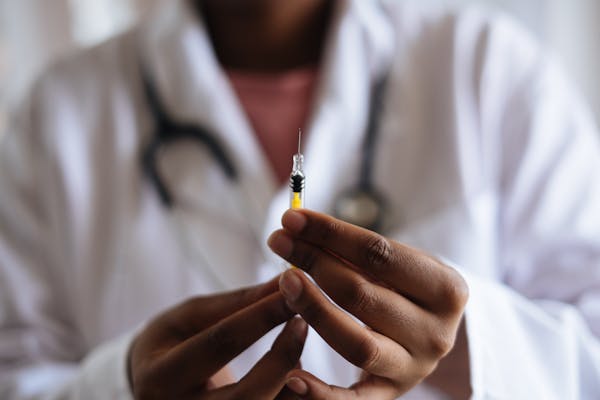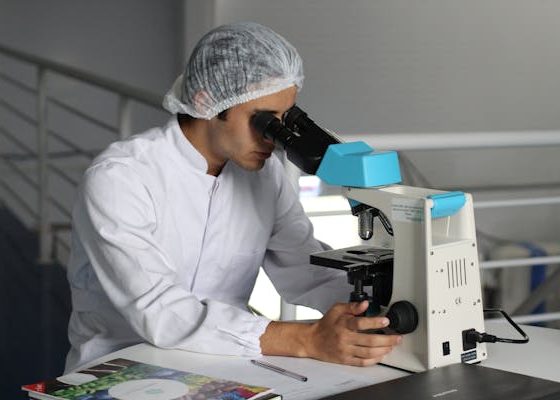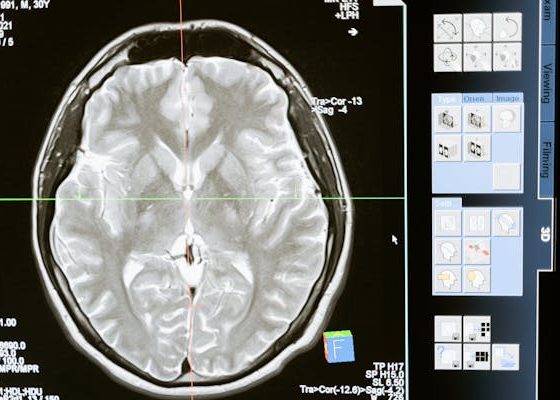Vaccination is one of the most effective public health interventions in human history, saving millions of lives and preventing countless diseases. The importance of vaccination cannot be overstated; it plays a pivotal role in maintaining global health, reducing healthcare costs, and ensuring the safety and well-being of individuals and communities. Through the eradication, elimination, and control of life-threatening diseases, vaccines have become a cornerstone of modern medicine.

This article explores the importance of vaccination in-depth, highlighting its benefits, addressing common misconceptions, and stressing the crucial role it plays in achieving herd immunity. We will also delve into the scientific mechanisms behind vaccines and discuss how immunization programs can prevent future pandemics and the resurgence of diseases.
The Importance of Vaccination in Preventing Diseases
Vaccines are biologically prepared substances designed to stimulate an immune response in the body, protecting individuals from specific infections. They contain weakened or inactivated components of viruses or bacteria that trigger an immune system reaction without causing illness. This process helps the immune system “learn” to recognize and fight these pathogens, offering long-term immunity. The importance of vaccination lies in its ability to shield people from potentially deadly diseases, both those that have plagued humanity for centuries and newly emerging threats.
1. Historical Successes of Vaccination
The development of vaccines has been a game-changer in the fight against infectious diseases. Smallpox, for example, was one of the deadliest diseases in human history, causing immense suffering and millions of deaths across centuries. However, thanks to a global vaccination campaign led by the World Health Organization (WHO), smallpox was eradicated in 1980—the only human disease to be completely eliminated to date. This success story underscores the importance of vaccination in addressing global health challenges.
Another notable example is the near-eradication of polio. Polio, which once paralyzed hundreds of thousands of children annually, has been reduced by over 99% since 1988 due to widespread vaccination efforts. As of 2021, only two countries, Afghanistan and Pakistan, still report cases of wild poliovirus transmission, highlighting the profound impact that vaccines can have on disease control.
2. Modern Vaccine Successes
In recent decades, vaccination has contributed to the dramatic reduction of numerous infectious diseases, including measles, mumps, rubella, diphtheria, and whooping cough. These vaccines have transformed the health landscape, preventing epidemics and saving millions of lives every year. The importance of vaccination in maintaining public health is exemplified by these vaccines’ ability to control outbreaks and limit the spread of diseases.
The introduction of newer vaccines, such as the human papillomavirus (HPV) vaccine, has further expanded the range of preventable diseases. The HPV vaccine has been shown to protect against cervical cancer, one of the most common cancers in women. This advancement represents a shift in vaccine development from preventing infectious diseases to also combating cancer and other non-communicable conditions.
3. Global Health Impact
The impact of vaccination extends beyond individual health; it is integral to global health security. Vaccination campaigns not only reduce disease incidence but also improve overall public health outcomes, leading to healthier populations and enhanced productivity. Healthy individuals contribute to economic growth, as they are less likely to miss work due to illness and can participate more fully in society.
The Global Vaccine Action Plan (GVAP) launched by the WHO aims to immunize people of all ages against vaccine-preventable diseases and to eliminate diseases such as measles and rubella. This plan emphasizes the importance of vaccination as a fundamental right and a vital component of health systems worldwide.
How Vaccines Work: A Brief Overview of the Science
Understanding how vaccines work provides insight into their critical role in disease prevention. Vaccines work by training the immune system to recognize and combat pathogens, including viruses and bacteria. When introduced into the body, the vaccine components—either weakened or inactivated parts of the pathogen—stimulate the production of antibodies. These antibodies are the immune system’s primary defense mechanism against infections.
Once vaccinated, the immune system develops memory cells that remember the pathogen and can mount a quick and effective response if exposed to the real virus or bacteria in the future. This ability to “recall” pathogens means that vaccinated individuals are less likely to get sick and are more likely to recover quickly if they do.
1. Types of Vaccines
There are several types of vaccines, each designed to teach the immune system how to defend against specific pathogens:
- Live-attenuated vaccines use a weakened form of the virus or bacteria that cannot cause disease in healthy individuals but still triggers a strong immune response. Examples include the measles, mumps, and rubella (MMR) vaccine and the yellow fever vaccine.
- Inactivated vaccines contain viruses or bacteria that have been killed or inactivated, so they cannot cause illness. These vaccines often require booster doses to maintain immunity. The polio vaccine (inactivated polio vaccine, IPV) is an example.
- Subunit, recombinant, and conjugate vaccines use only parts of the pathogen, such as proteins or sugars, to elicit an immune response. The HPV vaccine and the pneumococcal conjugate vaccine fall under this category.
- Messenger RNA (mRNA) vaccines, such as those developed for COVID-19, use a genetic code to instruct cells to produce a protein that triggers an immune response. These vaccines do not use live viruses or require viral components.
The diversity of vaccine types allows for tailored approaches to prevent different diseases, showcasing the versatility of vaccines in promoting global health. Understanding these mechanisms underscores the importance of vaccination in preparing the immune system to combat threats effectively.
2. Immunological Memory
The key to the effectiveness of vaccines lies in the development of immunological memory. After vaccination, the immune system creates specific antibodies against the pathogen. These antibodies can persist for years, providing long-lasting protection against subsequent infections. If the vaccinated individual is exposed to the disease in the future, the immune system can respond rapidly and effectively, often preventing illness altogether.
3. The Role of Adjuvants
Many vaccines include adjuvants—substances that enhance the body’s immune response to the vaccine. Adjuvants can help improve the effectiveness of vaccines by stimulating the immune system, allowing for a stronger and longer-lasting immune response. Understanding the role of adjuvants is crucial in vaccine development and optimization.
Herd Immunity: Protecting the Vulnerable
One of the most crucial aspects of vaccination is its contribution to herd immunity, also known as community immunity. Herd immunity occurs when a significant portion of a population is immunized against a disease, reducing its spread and protecting those who cannot be vaccinated, such as infants, pregnant women, and individuals with weakened immune systems.
The importance of vaccination in achieving herd immunity cannot be overstated. By vaccinating a large percentage of the population, the transmission of infectious diseases is disrupted, making it difficult for outbreaks to occur. This not only protects vaccinated individuals but also those who are vulnerable and unable to receive certain vaccines.
1. The Threshold for Herd Immunity
The specific vaccination coverage required to achieve herd immunity varies by disease. For example, measles requires approximately 95% of the population to be vaccinated to prevent outbreaks due to its high transmissibility. In contrast, diseases like polio may require a lower percentage of vaccination coverage to maintain herd immunity.
Understanding the threshold for herd immunity is vital for public health initiatives and vaccination campaigns. Efforts to maintain or increase vaccination rates in a community are essential to protect vulnerable populations and prevent the resurgence of diseases.
2. Impact on Outbreaks and Epidemics
When vaccination rates decline, the risk of disease outbreaks increases significantly. Historical examples, such as the resurgence of measles in various parts of the world, highlight the consequences of falling vaccination rates. The 2019 measles outbreak in the United States was attributed to declining vaccination coverage, leading to the largest number of cases in nearly two decades.
By contrast, high vaccination rates have effectively controlled outbreaks of vaccine-preventable diseases, demonstrating the importance of vaccination in safeguarding public health.
Vaccine Hesitancy: A Growing Threat
Despite the clear benefits of vaccines, vaccine hesitancy has emerged as a significant global health challenge. Vaccine hesitancy refers to the delay in acceptance or refusal of vaccines despite the availability of vaccination services. This phenomenon is often fueled by misinformation, distrust in medical authorities, and fear of side effects.
1. Misinformation and Anti-Vaccine Movements
The spread of misinformation, particularly through social media, has contributed to the rise of anti-vaccine movements. False claims, such as the discredited theory linking vaccines to autism, have caused confusion and eroded public trust in vaccination. This misinformation can have serious consequences, leading to lower vaccination rates and increased disease outbreaks.
The influence of social media and internet forums can amplify fears and misconceptions, creating echo chambers that reinforce anti-vaccine beliefs. Research shows that misinformation can spread rapidly, outpacing efforts to disseminate accurate information about vaccines.
2. Building Trust and Communication Strategies
Addressing vaccine hesitancy requires effective public health communication, education, and transparency. Healthcare professionals and authorities must work together to provide accurate information about the importance of vaccination, dispel myths, and emphasize the scientific evidence supporting vaccine safety and efficacy.
Trust-building strategies, such as involving community leaders and healthcare providers in vaccination campaigns, can improve public perception of vaccines. Engaging with hesitant individuals empathetically and addressing their concerns is crucial for fostering a supportive environment for vaccination.
3. The Role of Governments and International Organizations
Governments and international organizations play a crucial role in promoting vaccination and countering vaccine hesitancy. The WHO, the Centers for Disease Control and Prevention (CDC), and other health agencies work tirelessly to educate the public about the importance of vaccination, implement immunization programs, and ensure vaccine access for all.
Public health campaigns that emphasize the collective benefits of vaccination, such as protecting vulnerable populations and preventing disease outbreaks, can help mitigate the impact of vaccine hesitancy. Additionally, ensuring equitable access to vaccines, particularly in low-income countries, is essential for achieving global health goals.
The Role of Vaccination in Preventing Future Pandemics
The COVID-19 pandemic has underscored the importance of vaccination in preventing global health crises. The rapid development of COVID-19 vaccines has saved countless lives and prevented severe illness and hospitalizations, highlighting the critical role that vaccines play in managing infectious diseases.
1. Lessons from COVID-19
The COVID-19 pandemic demonstrated how quickly a novel virus can spread and overwhelm healthcare systems. Vaccines were developed at an unprecedented pace, and their deployment was crucial in reducing the severity of the pandemic. The global response to COVID-19 also highlighted the importance of international cooperation and the need for robust vaccine distribution systems.
The COVID-19 vaccine rollout showcased the critical need for preparedness in the face of emerging infectious diseases. Countries that had invested in vaccine research and development were better equipped to respond to the pandemic, demonstrating the necessity of continuous investment in vaccine technology and infrastructure.
2. Global Vaccine Equity
While COVID-19 vaccines were developed rapidly, their distribution has not been equitable. Low- and middle-income countries have faced significant challenges in accessing vaccines, leading to prolonged outbreaks and the emergence of new variants. The pandemic has revealed the stark inequalities in global healthcare systems and the need for international efforts to ensure that vaccines are available to all, regardless of geographic or economic barriers.
The importance of vaccination in preventing future pandemics is clear, but global health equity must be prioritized to ensure that all countries can benefit from these life-saving tools. Organizations such as COVAX, a global initiative aimed at equitable access to COVID-19 vaccines, have played a critical role in addressing these disparities, but more work is needed to strengthen global health infrastructure.
3. Investing in Vaccine Research and Development
Investing in vaccine research and development is essential for future pandemic preparedness. The emergence of new infectious diseases highlights the need for rapid vaccine development capabilities. The use of advanced technologies, such as mRNA platforms, has shown promise in accelerating vaccine development timelines.
Collaboration between governments, pharmaceutical companies, and research institutions is crucial for advancing vaccine technologies and ensuring that we are prepared for future health crises. Supporting global health initiatives and ensuring funding for vaccine research can help mitigate the impact of future pandemics.
Conclusion
Vaccination is an essential tool in the fight against infectious diseases, and its importance extends far beyond individual protection. The widespread use of vaccines has saved millions of lives, prevented devastating diseases, and contributed to the overall well-being of societies. The importance of vaccination cannot be emphasized enough, particularly in the context of achieving herd immunity, preventing pandemics, and promoting global health equity.
While challenges such as vaccine hesitancy and unequal access to vaccines persist, the benefits of vaccination far outweigh the risks. By investing in public health initiatives, fostering trust in vaccination, and prioritizing global health equity, we can ensure that the importance of vaccination continues to be recognized and valued in the years to come.
As we move forward in a world increasingly interconnected, it is vital that we embrace vaccination not just as a personal choice but as a collective responsibility. The importance of vaccination lies in its ability to protect not only ourselves but also our communities and future generations. Vaccines are a testament to human ingenuity and collaboration, and they represent a beacon of hope in the ongoing struggle against infectious diseases.







